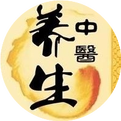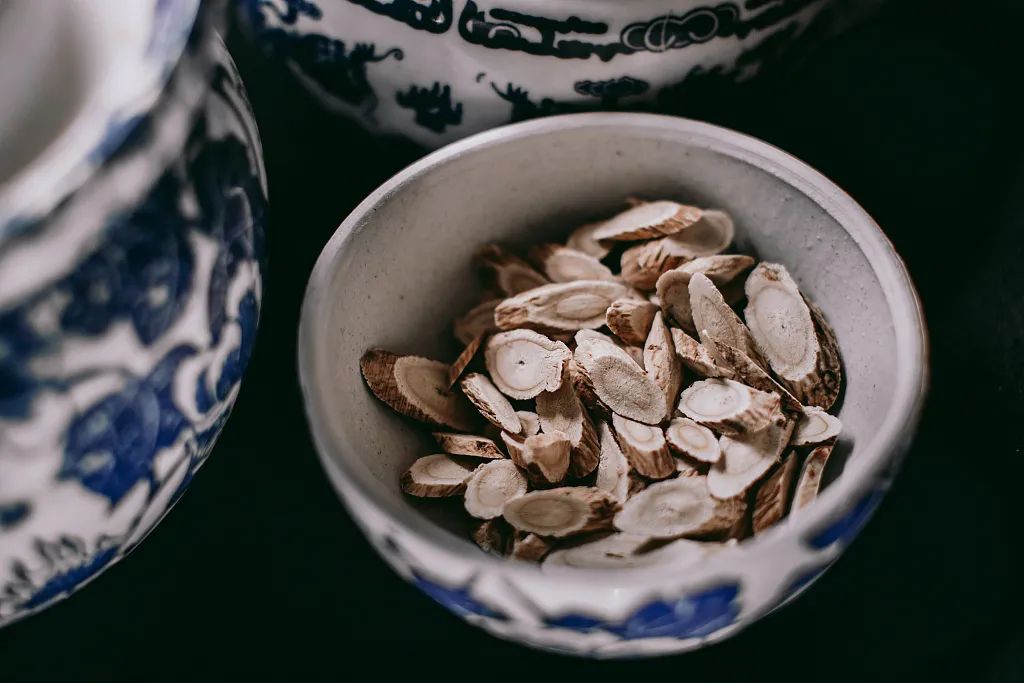
Astragalus (Huang Qi), a star in the world of traditional Chinese medicine, is referred to as the “top herb for tonifying Qi” by Li Shizhen.
Traditional Chinese medicine states: Humans are born from Qi, and among all forms, nothing is more important than Yuan Qi (Original Qi).
When Yuan Qi is abundant, the physiological functions of the organs can operate normally; when it is deficient, various diseases can easily arise, leading to a multitude of ailments.
Unlike Ren Shen (Ginseng), which strongly tonifies Yuan Qi, Astragalus provides a gentle and steady boost, preventing issues like nosebleeds from excessive tonification. Therefore, Astragalus has always been a treasure in the cups of the common people.
Five Major Benefits of Astragalus
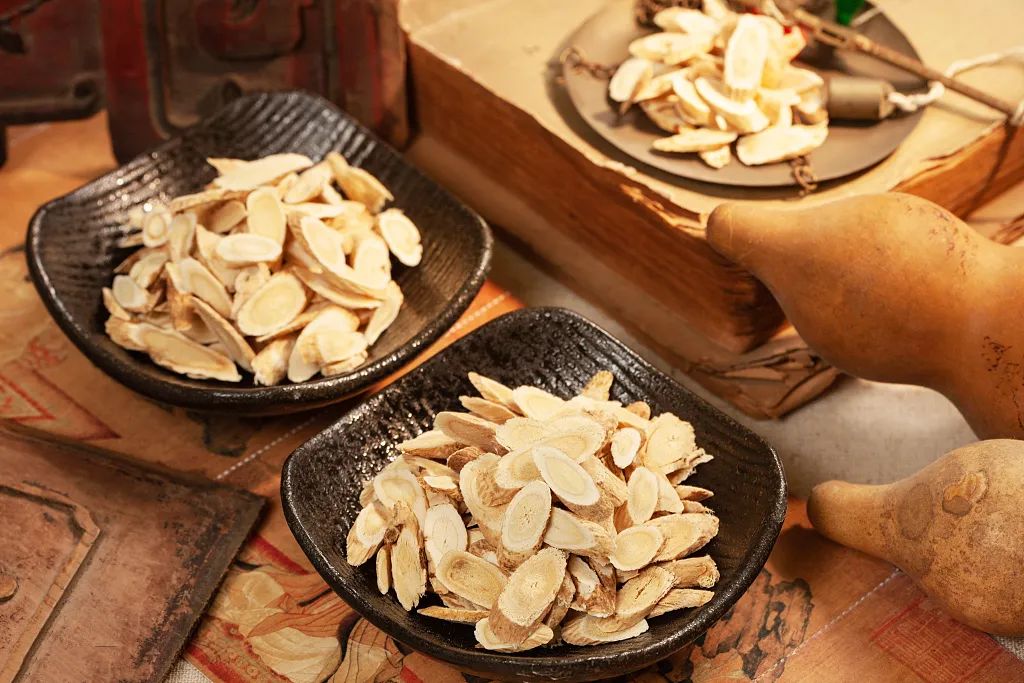
1Tonifying the Middle and Benefiting Qi
Astragalus not only strengthens the spleen and tonifies Qi but also benefits the Qi of the five organs. When symptoms of Qi deficiency appear, Astragalus can be used for regulation.
2Raising Yang and Lifting the Prolapse
The spleen governs the upward movement; if spleen Qi is insufficient, it will sink, leading to conditions like organ prolapse, uterine prolapse, excessive menstrual bleeding, and rectal prolapse.
Astragalus can replenish Qi, allowing spleen Qi to rise normally and avoid sinking.
3Tonifying Qi and Benefiting Wei
Wei Qi is the protective Qi of the body surface. Astragalus not only tonifies internal Qi but also enhances external Qi, thereby improving the body’s immunity. Those who frequently catch colds can use Astragalus for prevention.
4Diuretic and Reducing Edema
The medical sage Zhang Zhongjing mentioned in his work Jin Gui Yao Lue the use of Astragalus to treat rheumatic edema, which is particularly effective for edema caused by Qi deficiency.
5Promoting Healing of Sores
If the body is deficient in Qi and blood, leading to sores that do not heal or surgical wounds that are slow to recover, Astragalus can be very beneficial.
Who Can Use Astragalus

1People with Qi Deficiency
Many elderly individuals suffer from asthma due to Qi deficiency, becoming short of breath with minimal exertion (insufficient heart Qi);
Those with symptoms like poor appetite, abdominal distension, fatigue, and loose stools (spleen and stomach Qi deficiency);
Those who are timid and afraid to speak in public (liver Qi deficiency);
Those with kidney prolapse can also benefit (kidney Qi deficiency).
2People with Spontaneous Sweating
Spontaneous sweating occurs with slight movement, leading to feelings of weakness and fatigue. This often indicates surface deficiency and spontaneous sweating, which is essentially Qi deficiency and insufficient Wei Qi to contain sweat. Astragalus can help tonify Qi to retain sweat.
3People with Edema
Diuretic treatments for chronic edema often address symptoms rather than the root cause, as chronic edema is not due to excess water in the body but rather unutilized water.
This is primarily due to insufficient Qi, which cannot effectively utilize the body’s water.
Astragalus can tonify the Qi of the lungs, spleen, and kidneys, promoting water metabolism in the body, making it difficult for edema to persist.
4People with Constipation
There are many types of constipation; Astragalus is effective for Qi deficiency constipation.
This type presents with a sense of urgency but difficulty in passing stools, resulting in only small, thin stools, often accompanied by sweating and shortness of breath after defecation.
Who Should Not Use Astragalus
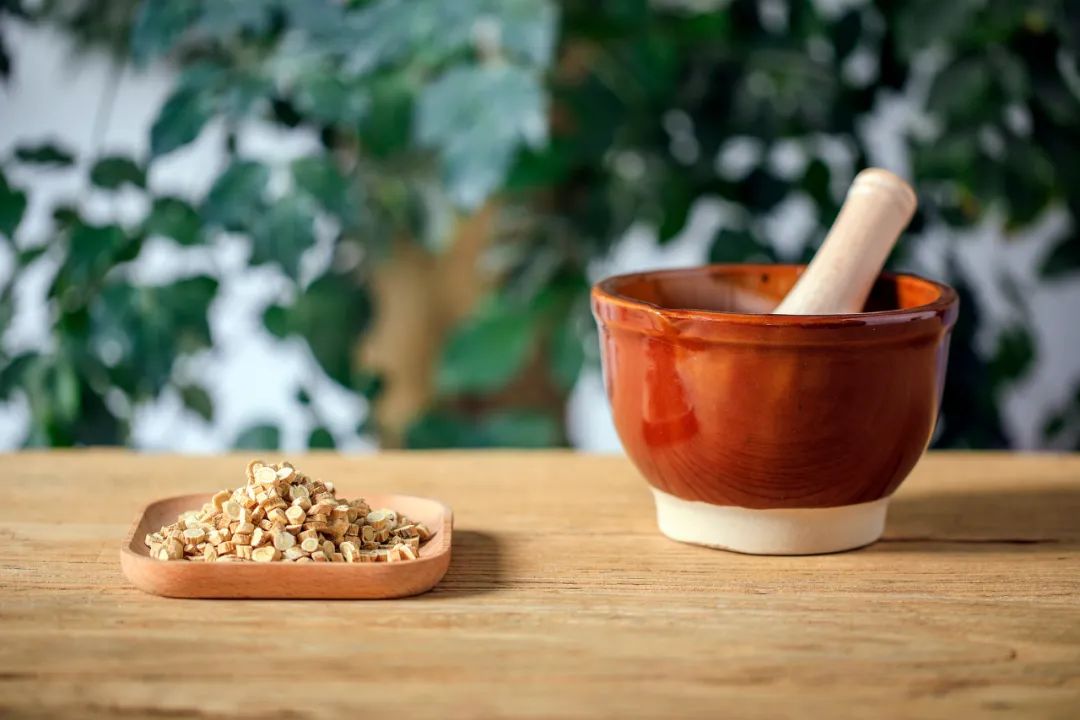
Although Astragalus is beneficial, it is still a medicinal herb, and improper use can lead to issues like abdominal distension and excessive gas.
Therefore, before using Astragalus, you must conduct a self-assessment.
Test 1: Recall if you sweat easily.
If you sweat easily during normal activities, it indicates Qi deficiency, making Astragalus more suitable for you.
Test 2: Assess your immunity.
Immunity is the body’s self-defense mechanism. If you answer “yes” to three or more of the following seven questions, it indicates low immunity, making you suitable for Astragalus.
1. Do you often feel weak and fatigued?
2. Do you prefer quiet and feel lazy to speak?
3. Is your appetite low, leading to malnutrition?
4. Do you catch colds at least four times a year?
5. Do you resort to injections or medications for minor ailments?
6. Do you take a long time to recover from illnesses, often experiencing relapses?
7. Do you spend most of your time in a climate-controlled environment?
Test 3: Observe your tongue.
Look in the mirror; if your tongue coating is thin and there are teeth marks on the sides, it indicates that you may have some degree of Qi deficiency.
Note: Individuals with excessive dampness may have a thick and greasy tongue coating, making the use of Astragalus likely to obstruct Qi flow and worsen discomfort. Therefore, those with phlegm-damp constitution should not consume Astragalus alone.
Signs of Excess Dampness: Heaviness in the body, lack of appetite, abdominal fullness, sticky stools, and a thick greasy tongue coating.
Additionally, those with Yin deficiency, heat syndromes, or Qi stagnation should also avoid using Astragalus.
Correct Use of Astragalus
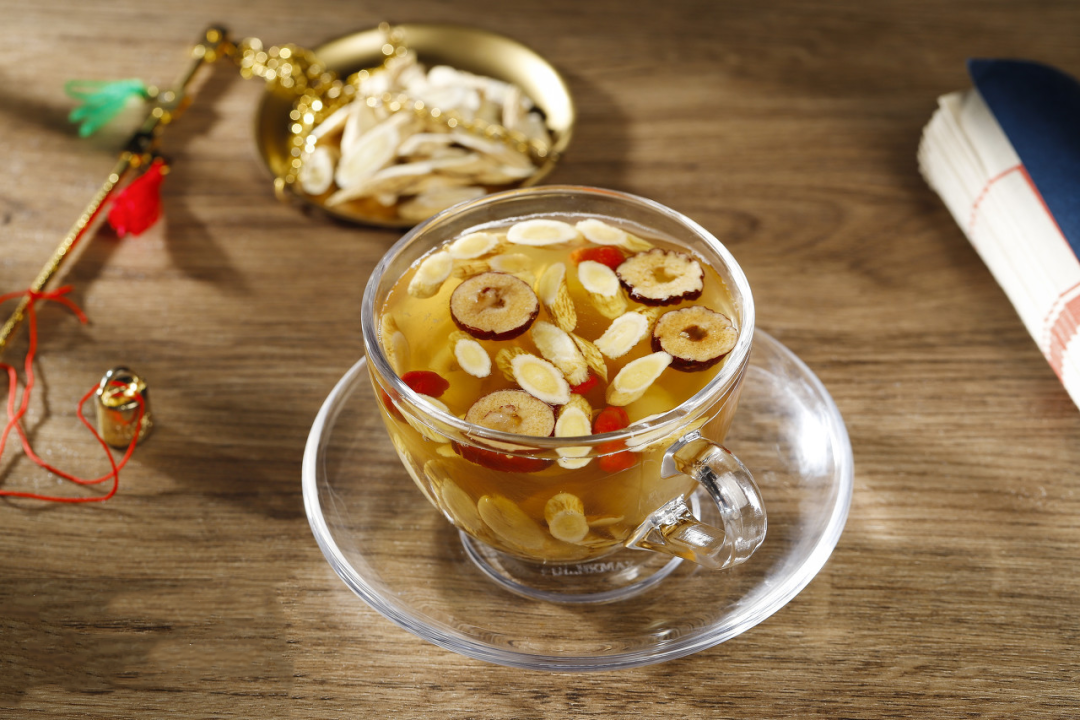
1Astragalus and Jujube Tea
Ingredients: 30g of Astragalus, 7 jujubes, 3g of dried tangerine peel.
Jujubes tonify Qi and blood, nourish the spleen and stomach, while dried tangerine peel regulates Qi stagnation. Long-term consumption can enhance the body’s resistance for those with low immunity.

2Astragalus and Hawthorn Drink
Ingredients: 20g of Astragalus, 10g of hawthorn, 400ml of water.
Method: Rinse Astragalus and hawthorn with cold boiled water, then place them in a thermos and pour boiling water over them. After half an hour, it can be consumed. You can add boiling water to continue steeping.
Astragalus tonifies Qi, while hawthorn invigorates blood. This combination is especially suitable for patients with Qi deficiency heart disease and those with hypertension.
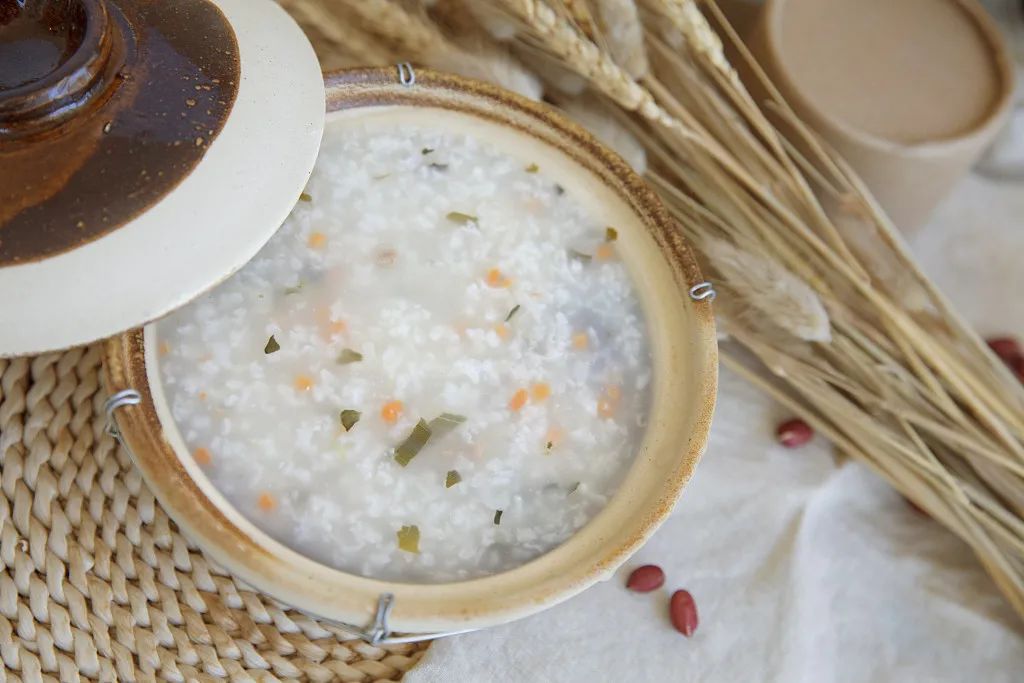
3Astragalus Spleen Nourishing Porridge
Ingredients: 15g of roasted Astragalus, 50g of rice, 3g of dried tangerine peel.
Method: Soak the rice for half an hour in advance, then soak the roasted Astragalus in 450ml of water for half an hour.
Combine the Astragalus and water in a pot, bring to a boil, then simmer for 10 minutes. Strain the Astragalus water, add more water, bring to a boil again, and simmer for another 10 minutes. Remove the Astragalus and pour the first batch of Astragalus water back into the pot.
Once boiling, add the rice and a small amount of oil, then add the dried tangerine peel powder and cook for 25 minutes.
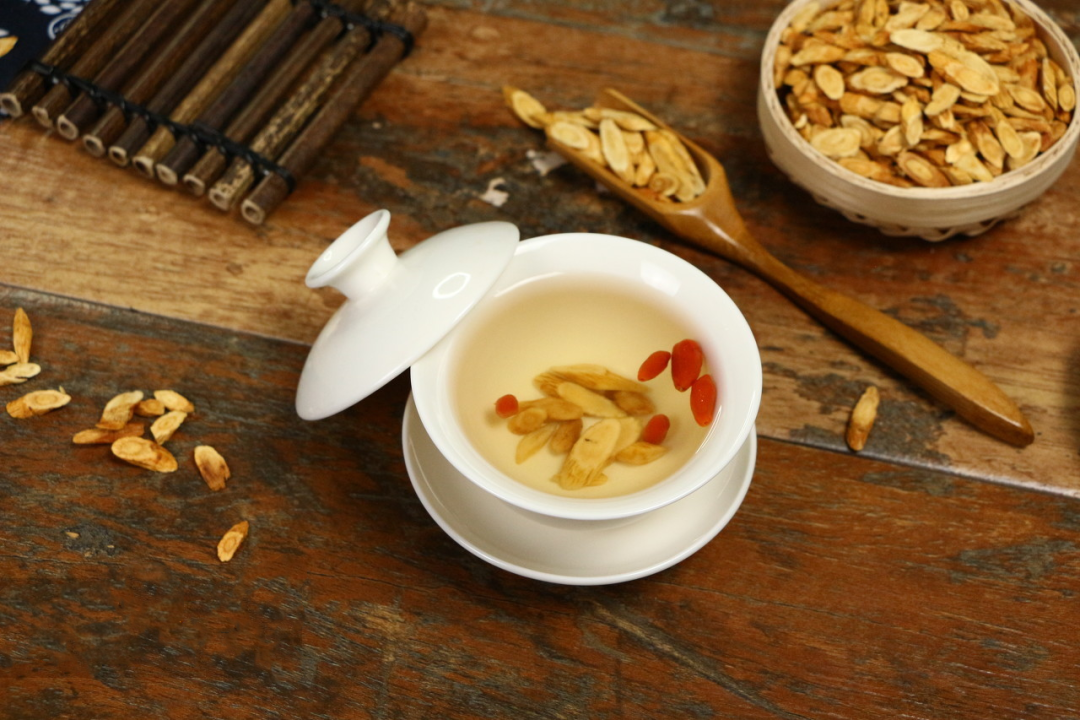
4Astragalus Qi Supplementing Tea
Ingredients: 10g each of American ginseng, goji berries, and Astragalus.
Method: Use the above herbs as a daily dose to brew and drink.
This tea benefits Qi, nourishes Yin, clears heat, reduces fire, alleviates fatigue, and enhances immunity, making it suitable for those who often stay up late.
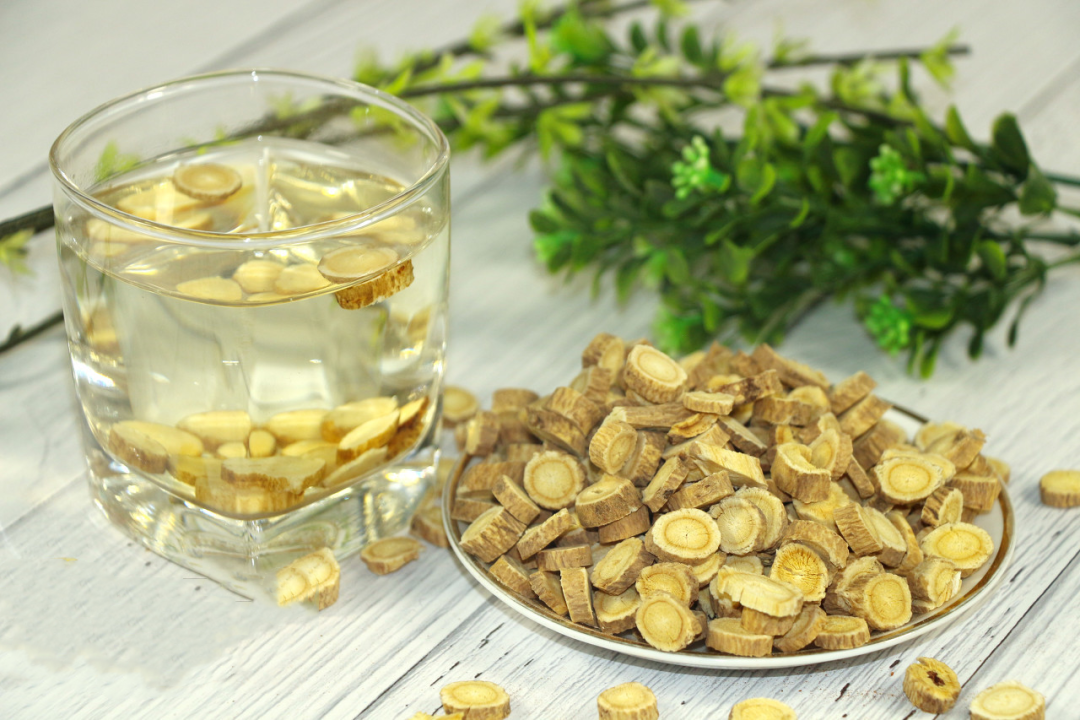
5Astragalus Water Spray for the Room
The renowned TCM expert Guanyoubo has used this method clinically: boil 120g of Astragalus in water, then spray it in the room. This allows the medicinal properties of Astragalus to be absorbed through breathing and skin, suitable for those with severe Qi and body deficiency.
The above is for reference only; please consult a physician for guidance.
Reviewed by: Pharmacist Lu
Edited by: Sanqi Xiaomei
Return to the main page Reply to any of the keywords
to view the corresponding articles
| Back Diagnosis | Face Diagnosis | Tongue Diagnosis | Sweat Diagnosis | Eye Diagnosis | Differentiation |
| Gua Sha | Cupping | Moxibustion | Acupressure | Foot Therapy | Meditation |
| Patting | Stretching | Veins | Nails | Acne | Stones |
| Liver Cirrhosis | Home Feng Shui | Sanfu Paste | Vinegar Soaked Eggs |
| Clever Tricks | Tests | Winter Diseases Treated in Summer | Self-Healing |

